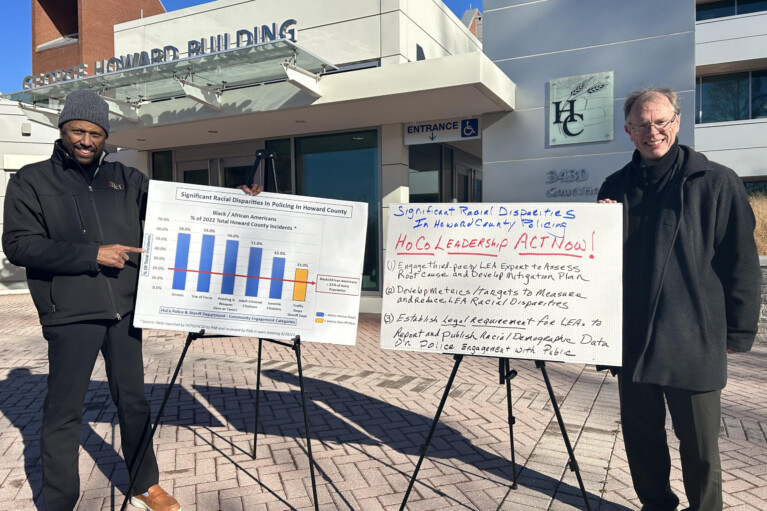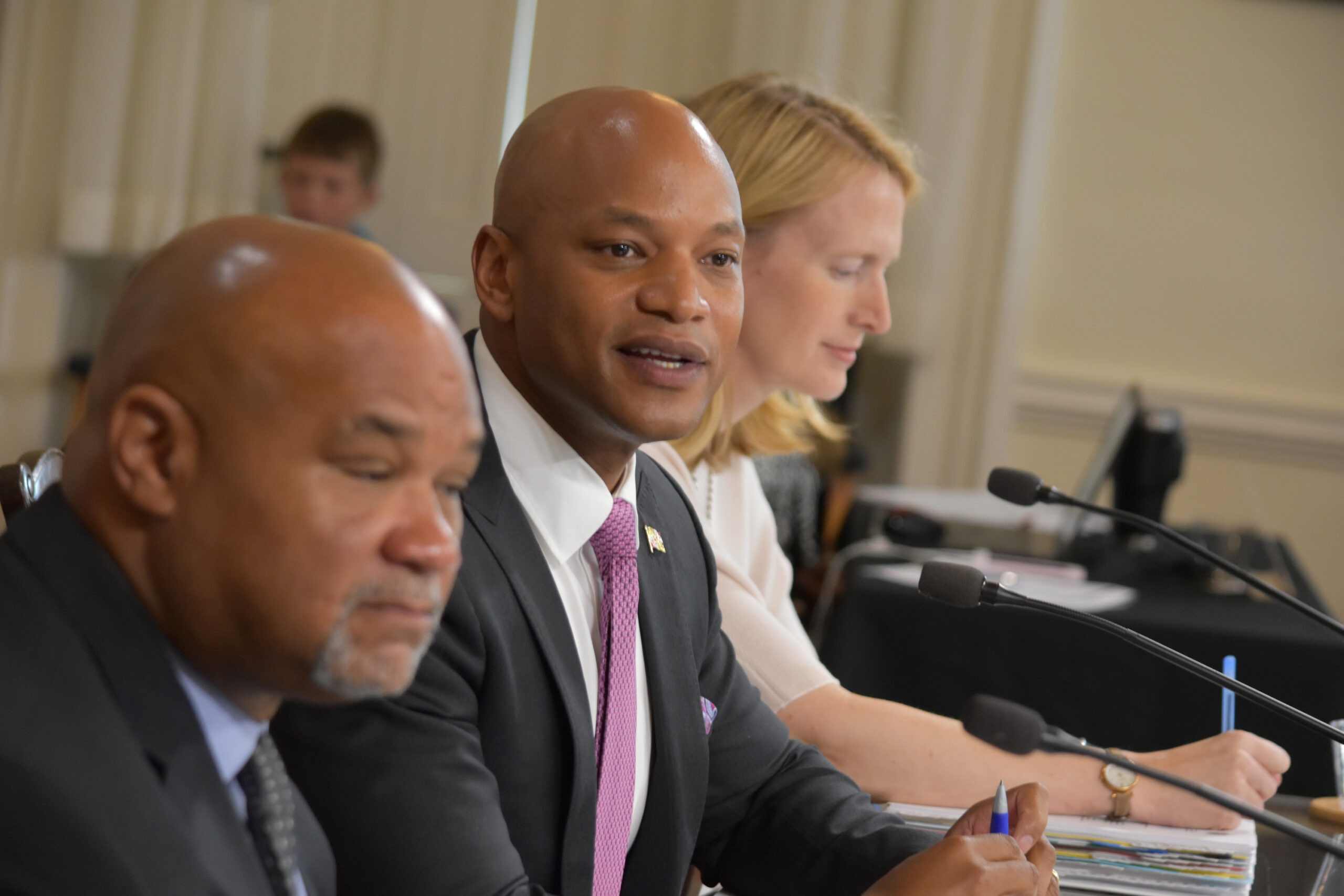Pava LaPere’s father to press lawmakers for change in early release prison laws

No father wants to get the call Frank LaPere did last Sept. 25, informing him his daughter, Pava LaPere, a 26-year-old tech CEO, had been found dead on the rooftop of the Baltimore City apartment building where she lived.
The condition of the crime scene was so grim, it prompted a Baltimore City Police detective to call in the homicide unit.
“I got a call from the detective who was on scene and who discovered her body,” LaPere, who resides in Arizona, said in an interview this week. “I knew something was wrong on Sunday because she always calls me on Sunday.”
Within a day, Baltimore City Police had a suspect — 32-year-old Jason Dean Billingsley, a convicted sex offender who had been released from prison early due to good conduct credits he earned during the time he was incarcerated. At the time, Billingsley was also the prime suspect of a violent attack on a young Baltimore couple a week earlier, which included allegations of first degree rape and attempted murder.
Billingsley was released early from prison in October 2022, after serving nine years and three months of a 14-year incarceration period. He had been sentenced to 30 years, with 16 years suspended, for a 2013 first-degree sexual offense involving threat and force.
While Billiingsley had been denied parole twice, state law called for mandatory early release due to diminution credits he earned.
“Credits are deducted from the maximum expiration date of the sentence to establish the mandatory supervision release date,” a Maryland Department of Public Safety and Correctional Services (DPSCS) said in an email.
In Maryland, most inmates can earn early release credits, known as “diminution credits,” for good conduct, education, work tasks, and other special projects, to shave time off of the length of their sentence, according to DPSCS.
Inmates incarcerated for crimes of violence, sexual offense, or being a “volume drug dealer or drug distribution king,” can earn up to 20 days of credit per month.
All other inmates can earn up to 30 days per month. The only exceptions are convictions for certain sexual crimes involving victims under 16 years and those imprisoned for violating their lifetime sexual offender supervision.
LaPere wants to change that. The Pava Marie LaPere Act would eliminate the right of first degree rape offenders to earn diminution credits. A hearing is set for Tuesday at 1 p.m. in the House Judiciary Committee, where LaPere will argue his case.
Freshman lawmaker outlines the Pava Marie LaPere Act
Freshman Del. Elizabeth Embry (D-Baltimore City), is spearheading the legislation, which originated from the office of Baltimore City State’s Attorney Ivan Bates (D). Embry served as the chief of the criminal division in the Maryland attorney general’s office from 2015 to 2018 and as special assistant attorney general from 2019 to 2022.
Embry said the bill would apply to all offenders convicted of first-degree rape on or after Oct. 1, 2024. The charge of “first degree rape” was amended in 2017 to include a first degree sex offense.
Any diminution credits earned prior to the bill’s Oct. 1 effective date would stay in place, the delegate said.
“What we don’t know yet is how the bill, if passed, would apply to currently sentenced inmates,” Embry said. “We have asked for guidance from the Maryland attorney general.”
Either way, Embry said, the inmate’s right to mandatory early release, which would have previously been allowed with diminution credits, would now be eliminated. The only way a prisoner could be released early would be through the Maryland Parole Commission.
“Inmates would still be eligible for parole,” Embry said. “But the law change would mean that only the Parole Commission would determine whether an inmate should be released. Unlike the mandatory release process, the Parole Commission can review the person’s previous violent acts, or lack thereof. They can hear from victims, from law enforcement, and have the ability to consider mitigating facts, as well.”
What would the bill cost the state?
Analysts from the Department of Legislative Services said the short term fiscal costs would not “materially affect state finances,” but over time, longer periods of incarceration would add up.
“The impact could eventually be significant considering the cumulative impact over time,” the DLS report stated.
The average cost to incarcerate an inmate is approximately $5,110 per month, according to DLS.
The Department of Corrections was unable to provide data on the number of offenders currently incarcerated in Maryland prisons for first degree rape or sexual offense. But Embry said in Maryland about 10 to 15 people per year are convicted of the two highest sexual offense crimes.
In 2023, 11 individuals were convicted of first degree rape, DLS wrote in the analysis of the bill.
Opponents of the legislation
Opponents of the bill do not believe taking away incentives for better behavior by prisoners is the solution. Others criticize passing out reduced sentences for violent sexual offenders.
“It sounds like through contextual reporting [Billingsley] earned a few years off his sentence, ultimately serving nine out of 14 years, but that still does not account for the fact that he had 16 years of his 30 year sentence suspended,” said Wanda Bertram of the Prison Policy Initiative, a national advocacy group that seeks to limit mass incarceration.
Brenda Jones, executive director of Families Advocating Intelligent Registries (FAIR), a Maryland organization that warns against the unintended consequences of sex offender registries, submitted testimony opposed to the proposed law.
FAIR’s written testimony includes the following passage:
“This bill’s stated objective is to remove diminution credits from a wider range of sexual offenses. The big flaw with this line of thinking is that somehow this is going to make our communities safer.”
In a follow-up interview with Maryland Matters, Jones said if the law is going to be changed, it has to fix the problem.
“We need to fix what’s causing that. How did [Billingsley] get out early?” Jones asked. “He clearly had mental issues. …The problem is he would have gotten out eventually. So changing that would not have ultimately fixed his particular problem either. If he is a danger and nobody is working that while he is on the inside, eventually his time is going to be up and he’s going to get out. Taking away the dim credits doesn’t stop them from eventually getting out into the public. It just takes their ability to get out early.”
LaPere said he believes that eliminating an early release decision based solely on a mathematical equation is a step in the right direction.



 Creative Commons Attribution
Creative Commons Attribution